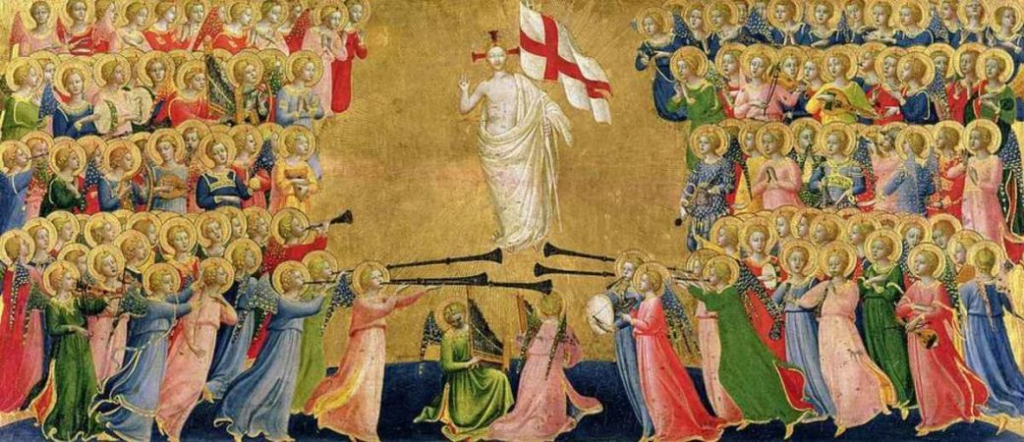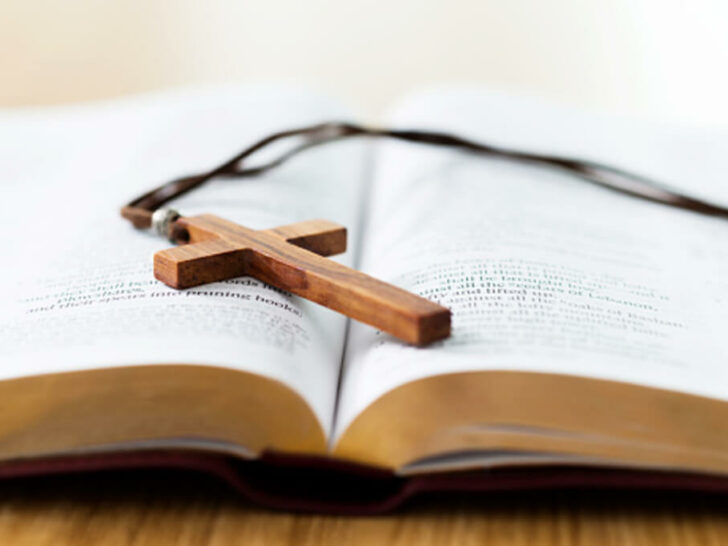Exploring the Fundamental Contrasts: Analyzing the Variances and Unraveling the Distinctions Between Catholicism and Christianity
Christianity is the world’s largest religion, encompassing various denominations such as Protestants, Mormons, Gnostics, Orthodox, and Catholics. While all Catholics are Christians, not all Christians are Catholics. Catholics consider Catholicism to be Christianity and believe that they have the full truth revealed by Jesus. However, there are significant differences in beliefs and practices between Catholics and other Christian denominations. This article will primarily explore the distinctions between Catholicism, Orthodoxy, and Protestantism, as these three groups provide adequate foils to one another.
Roman Catholicism: A Unique Branch of Christianity

Roman Catholicism is one of the oldest and largest branches of Christianity, with millions of followers worldwide. Its teachings are based on the life and teachings of Jesus Christ, as recorded in the Bible and interpreted by various theologians throughout history. Central to Roman Catholic teaching are the sacraments, which are believed to have been instituted by Jesus himself. These sacraments include baptism, confession, confirmation, marriage, and the Eucharist, among others.
The Pope: A Sign of Authority
One of the most distinct features of Catholicism is the belief in the papacy. Catholics consider the Pope to be the successor of Apostle Peter, appointed by Jesus himself. The Pope is believed to have spiritual authority over the Church and is considered the highest-ranking clergy member. In contrast, many other Christian denominations do not recognize the authority of the Pope and believe that all Christians are equal in their spiritual status. While they may have leaders such as elders or reverends, these positions do not carry the same level of authority as the Pope in Catholicism.
Purgatory: A Place of Cleansing

Catholics believe in the existence of purgatory, a place where souls are purified before entering heaven. According to Catholic doctrine, those who die in a state of grace but are not yet fully purified must undergo further purification in purgatory. This belief is rooted in the understanding that not all sins are forgiven in this life and that some form of purification is necessary to attain the holiness required for heaven. In contrast, many Protestant denominations teach that salvation comes through faith alone and reject the concept of purgatory. Orthodox Christians also have a different understanding of the afterlife, but the specifics may vary within different Orthodox traditions.
The Seven Sacraments: A Path to Spiritual Nourishment

Catholicism places great emphasis on the seven sacraments, which are seen as transformative rituals that offer grace and spiritual nourishment. These sacraments include baptism, confirmation, Eucharist, penance or reconciliation, anointing of the sick, holy orders, and matrimony. Each sacrament has a specific purpose and significance within the Catholic faith. For example, baptism removes original sin and incorporates the individual into the Church, while the Eucharist symbolizes the body and blood of Christ.
Scripture and Tradition: Dual Sources of Revelation

Catholics believe that God’s revelation comes through both sacred scripture and sacred tradition. Sacred tradition refers to teachings passed down from generation to generation within the Church, while sacred scripture includes the books of the Old Testament, New Testament, and other important religious texts. Catholicism views these scriptures as divinely inspired and containing the word of God. The interpretation of scripture and the authority to interpret it lies with the leaders of the Catholic Church, particularly the Pope and the Magisterium. In contrast, many other Christian denominations believe in the authority of scripture alone and do not accept the additional teachings found in sacred tradition.
Clerical Celibacy: A Tradition of Dedication
One distinctive feature of Catholicism is the requirement of celibacy for its clergy. This tradition dates back to the early centuries of Christianity and is believed to be rooted in Jesus Christ’s teachings on the importance of dedicating oneself fully to God. Catholic priests, as well as bishops and other ordained clergy, are expected to remain celibate and forgo marriage and family life. This commitment is seen as a way to focus entirely on spiritual pursuits and serve God without any distractions. While some other Christian denominations allow their clergy to marry, Catholicism maintains its traditional stance on celibacy.
Contraception: A Moral Standpoint
Catholicism prohibits the use of contraception and abortion due to deeply rooted beliefs, values, and traditions. According to Catholic teachings, contraception interferes with God’s plan for creation by negating the procreative aspect of sexual intercourse. Similarly, abortion is seen as intentionally taking innocent human life, violating God’s will for humanity. While other Christian denominations may allow contraception and abortion under certain circumstances, Catholicism maintains a stronger stance against them due to its commitment to the sanctity of all human life from conception to natural death.
Mass: A Central Act of Worship
Attending Mass is a significant aspect of Catholic worship. Catholics are required to attend Mass every Sunday as a sign of their commitment to their faith. Mass is an integral part of Catholic worship and involves rituals such as the liturgy of the Word, the liturgy of the Eucharist, and the reception of Communion. The Eucharist, in particular, is a central element of the Mass, as Catholics believe in the real presence of Jesus Christ in the consecrated bread and wine. Other Christian denominations also have their worship services, but the structure and practices may differ from Catholic Mass.
Worship: Different Styles and Emphases
Catholic worship is traditionally rooted in the Latin rite of the Roman Catholic Church. It is characterized by a strict set of liturgical practices, including the use of vestments, incense, and vessels specific to Catholic worship. The music, prayers, and rituals during Catholic Mass are carefully prescribed and follow a formal structure. In contrast, Protestant worship services often have a more informal and flexible structure, with an emphasis on congregational singing, scripture readings, and sermons. Orthodox Christian services may feature elaborate and ritualistic rites, including processions and changes in clergy clothing. Each branch of Christianity has its distinct style of worship, reflecting its theological and cultural traditions.
Transubstantiation: A Controversial Doctrine
Catholics believe in the doctrine of transubstantiation, which states that during the Eucharist, the bread and wine used in Communion become the actual body and blood of Jesus Christ. This belief is based on Jesus’ words at the Last Supper, where he said, “This is my body” and “This is my blood.” Other Christian denominations, including Protestantism and Orthodoxy, do not typically accept this teaching. They view the Eucharist as a symbolic remembrance of Christ’s sacrifice and believe that Jesus is present spiritually but not physically in the bread and wine. This difference in belief regarding the nature of the Eucharist is a significant point of divergence among Christians.
The Veneration of Saints: A Difference in Practice
Catholics and Orthodox Christians venerate saints, viewing them as holy individuals who have lived lives of exemplary faith and virtue. Veneration includes acts of devotion such as prayer and seeking their intercession. Catholics may also venerate relics associated with saints. In Catholicism, saints are seen as intercessors between humans and God, with the belief that they can help those on Earth. In contrast, many Protestant denominations do not venerate saints and focus on a direct relationship with God through Jesus Christ. They believe that Jesus is the sole mediator between God and humanity and that focusing on saints may distract from this relationship.
Confession: A Sacrament of Healing
Confession is a significant practice in Catholicism, where believers confess their sins to a priest and receive absolution. This sacrament is seen as a means of spiritual healing and reconciliation with God and the Church. Many Protestant denominations and Orthodox Christians, on the other hand, do not practice confession in the same way. They believe that confession should be made directly to God and that forgiveness comes through repentance and faith in Jesus Christ. While some branches of Christianity may practice confession within the community for accountability, the emphasis is on personal confession to God rather than a sacramental practice.
Baptism: A Symbol of Faith
Christian baptism is a sacrament that symbolizes an individual’s commitment to following Christ and becoming part of God’s family. Catholics believe that baptism is essential for salvation and often practice infant baptism, while other Christian denominations may practice believer’s baptism, where a person consciously accepts Jesus as their Savior before being baptized. The significance and mode of baptism may vary among different Christian traditions, but it remains a central rite that symbolizes initiation into the Christian faith.
The Virgin Mary: A Symbol of Devotion
The Virgin Mary holds a significant place in Catholic devotion and theology. Catholics venerate Mary as the mother of Jesus and believe in her perpetual virginity and assumption into heaven. The role and nature of Mary have been a subject of theological debate between Catholics and other Christians. While Catholics believe in Mary’s sinlessness and her special place in salvation history, other Christians view her as a faithful servant of God but not without sin. Regardless of these differences, Mary is revered as an important figure in both Catholic and Christian faiths.
Conclusion
In conclusion, Catholicism is a unique branch of Christianity with distinct beliefs and practices that set it apart from other Christian denominations. While Catholics and other Christians share a common belief in Jesus Christ as their Savior, there are significant differences in doctrines such as the authority of the Pope, the practice of confession, and the understanding of the Eucharist. Understanding and respecting these differences can contribute to a more comprehensive understanding of the diversity within the Christian faith.
